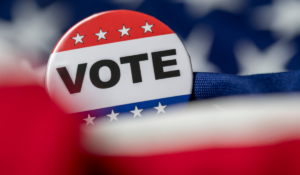Ending the “Use it or Lose it Week”

 Washington, D.C. – U.S. Senator Rob Portman (R-Ohio) today released the latest example in a monthly series highlighting Washington’s wasteful spending during a time of record debt:
Washington, D.C. – U.S. Senator Rob Portman (R-Ohio) today released the latest example in a monthly series highlighting Washington’s wasteful spending during a time of record debt:
As the September 30th end of the fiscal year approaches, federal departments and agencies are preparing themselves for extravagant shopping sprees. In an annual budget-busting ritual, during the last week of September—known as “use it or lose it week”—agencies spend as much of their funding as possible in order to justify their already-inflated budgets.
A Washington Post investigation of the 2013 “use it or lose it week” uncovered the Department of Veterans Affairs purchasing $562,000 worth of art, the State Department spending $40,937 on sofas, lounge chairs, and a credenza, and even the Department of Agriculture buying $144,000 worth of toner cartridges in a single day. In 2010, Internal Revenue Service (IRS) executives produced a Star-Trek themed video for an expensive conference retreat using what the IRS evidently perceived as leftover money to be spent.
This excess occurs because some appropriations expire if not spent within a certain time period, and agencies often refuse to leave money on the table. Even for appropriations that do not expire, agencies often fear that spending below their allocations will signal to lawmakers that they can absorb budget cuts in the future. Simply put, justifying their inflated budgets—rather than saving taxpayer dollars—too often becomes the goal.
“Every tax dollar Washington spends represents one fewer dollar for a hardworking family who paid that tax,” said Portman. “Washington must become more efficient, and focus on saving tax dollars rather than trying to justify unnecessary new spending.”
As departments prepare for their shopping sprees, federal government contracting companies are preparing their sales teams for nonstop daily deals totaling millions of dollars. One software contracting company highlighted in the Washington Post investigation acknowledged that the last week of September represents one-quarter of its sales for the entire year.
A 2010 Harvard study found that not only did departments spend such a greater amount of contract funds in this last week, but that the projects began that week were as much as 5.6 times more likely to be “lower quality.”
Ending Washington’s spend-or-lose mentality requires new rules and incentives. This can include tighter federal spending caps, allowing unspent dollars to roll over, or even providing bonuses to federal employees who save tax dollars.
Even some federal employees have criticized the final-week excesses, such as never-used generators, three years’ worth of staples, and the National Guard purchasing “so much ammunition that firing it all became a chore.”
However, for the next month there is taxpayer money to be made for insiders in the know.









